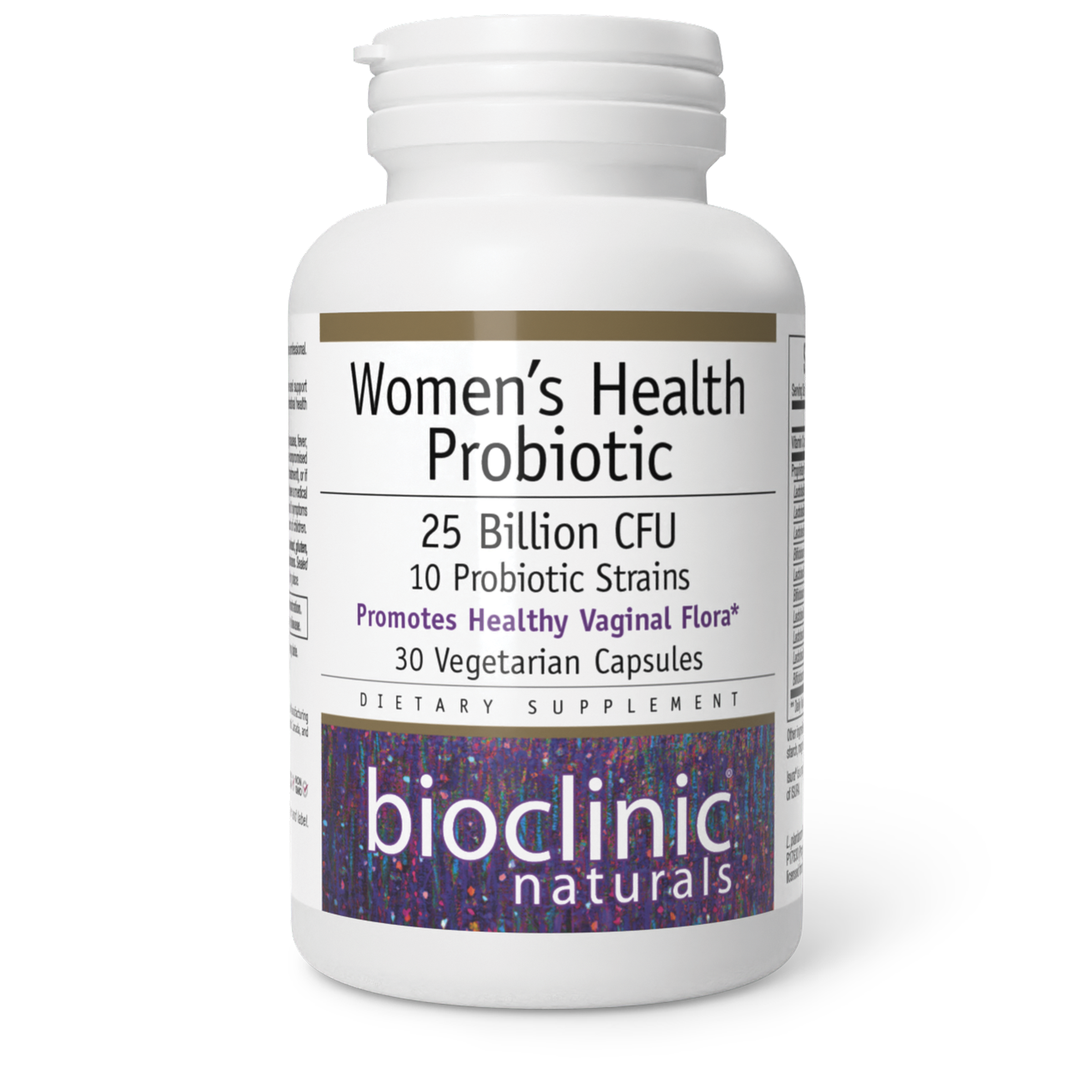
Promotes Healthy Vaginal Flora*
25 Billion CFU, 10 Probiotic Strains
30 Vegetarian Capsules ( SKU: 9675U )
Supplement Facts:

Medicinal Ingredients
| Supplement Facts | ||
| Serving Size 1 Capsule | ||
| Amount Per Serving | % Daily Value | |
| Vitamin C (ascorbic acid) | 12 mg | 13% |
| Proprietary Probiotic Vaginal Blend | 25 billion CFU | ** |
| Lactobacillus paracasei (R0215) | 8.4 billion CFU | ** |
| Lactobacillus rhamnosus (GG) | 7.5 billion CFU | ** |
| Lactobacillus plantarum ROSELLA (P17630®) | 5 billion CFU | ** |
| Bifidobacterium animalis subsp. lactis (LAFTIB94) | 2.5 billion CFU | ** |
| Lactobacillus plantarum (R1012) | 0.5 billion CFU | ** |
| Bifidobacterium longum subsp. longum (HA-135) | 0.25 billion CFU | ** |
| Lactobacillus acidophilus (R0418) | 0.25 billion CFU | ** |
| Lactobacillus helveticus (R0052) | 0.25 billion CFU | ** |
| Lactobacillus rhamnosus (R0011) | 0.25 billion CFU | ** |
| Bifidobacterium bifidum (R0071) | 0.1 billion CFU | ** |
| ** Daily Value not established. | ||
Dosage:
Suggested Usage: 1 vegetarian capsule per day or as directed by a health care professional.
Warnings:
Consult a health care professional prior to use if you are experiencing nausea, fever, vomiting, bloody diarrhea, or severe abdominal pain, if you have an immune-compromised condition (e.g., AIDS, lymphoma, patients undergoing long-term corticosteroid treatment), or if you are pregnant, trying to become pregnant, breastfeeding, taking medication, have a medical condition, or anticipate surgery. Stop use and consult a health care professional if symptoms of digestive upset occur, worsen, and/or persist beyond 3 days. Keep out of reach of children.
Allergens:
Contains no artificial colors, preservatives, or sweeteners; no dairy, sugar, wheat, gluten, soy, sesame, egg, fish, shellfish, salt, tree nuts, or GMOs. Suitable for vegetarians. Sealed for your protection. Do not use if seal is broken. For freshness, store in a cool, dry place.
